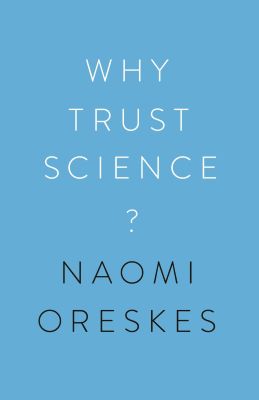Why Trust Science?
file under: FROM THEORY TO PRACTICE.
this one is from: AMBIKA.
Every time I go to the doctor, I give myself a pep talk beforehand. I remind myself that I know my own body better than anyone else on the planet—I have, after all, lived with it my entire life. I need this inner monologue to guard against the collapse of my resolve when faced with a doctor’s authority. Without it, I simply dissolve into a puddle of acquiescence. Like when a gynecologist informed me, upon meeting me for the very first time, that my hairline was receding—I believed him, and agreed to his ensuing recommendations, until I went home and looked at older photographs of myself, which confirmed that, in fact, my hairline was standing strong. Conversely, of course, I don't want to brace too much against authority figures. I want to remain open to my doctor’s expertise, which is rooted in their years of training and clinical experience. Otherwise, why seek out a doctor at all?

This tension between expertise and authority is not just a feature of doctor’s visits. It animates interactions with all kinds of experts, and lies at the very heart of science communication. It speaks to the ever-present question of how people might come to trust science. We know from our own experiences—like mine at the doctor’s office—that unquestioned authority (or the illusion of it) often breeds fear and obedience or perhaps resentment and defiance, but not trust. If we assume that scientists want to be trusted (rather than simply obeyed), how should they approach engaging with others about their science?
A 2019 book by science historian Naomi Oreskes called Why Trust Science? tackles this question head-on. At the outset, Oreskes dismisses the standard explanation for why we should trust science: the scientific method. Scientists don’t really follow a single, singular scientific method at all, she reminds us. This isn’t a problem for science, by the way. It’s simply the reality of how science has long operated. But then, Oreskes asks (in her 2014 TED talk), “If scientists don’t use a single method, then how do they decide what’s right and what’s wrong? And who judges?”
“The answer,” she continues, “is: scientists judge.” Scientists themselves come to trust the knowledge they produce through a collective, communal process of evaluating one another’s research and coming to consensus about it. Which is to say, trust doesn’t magically work differently in science than it does in other parts of our lives. Science is, after all, a deeply human endeavor. We build trust in science the same way that we build trust anywhere—through relationships.
So when we talk about science in a way that obscures the scientists doing the work, we also obscure the relationships from which trust in science emerges. Consider the statement that “science is self-correcting.” A capacity for self-correction is a great reason to trust something, but how is science self-correcting, exactly? Describing ideas from philosopher Helen Longino, Oreskes puts it thus:
it is not so much that science corrects itself, but that scientists correct each other…It is through the give and take of ideas—the challenging, the questioning, the adjusting and amending—that scientists integrate their colleagues’ work, offer up criticisms, and contribute to the growth of warranted knowledge.
What does this mean for science communication? It’s rare for a person outside a particular scientific community to participate directly in the scientific consensus making process. But such a person can come to trust that a scientific community’s process of consensus making is robust, by asking questions like:
Is a community open to new and diverse points of view, including those of “non-experts”?
Does it engage deeply with critique?
Do its formal structures for challenging, questioning, adjusting and amending (structures like peer review) work well?
When a person trusts that the answer to these questions is “yes,”, then they’ll be more likely to trust this scientific community as a source of knowledge. Knowledge that is created through a robust process of consensus within a scientific community is worthy of being trusted.
For me, Why Trust Science? makes one thing clear: scientists who want to gain the trust of people outside their scientific communities would do well to talk honestly about, and tend carefully to, the social processes of knowledge-making within their communities. Trust begins right where we are.
For some nuanced thoughts and conversation on trust in science, check out this recent episode of the Research Comms Podcast!
Upcoming:
The Yale Ciencia Academy for Professional Development is recruiting its next cohort! Liz is a trainer for this program. The application deadline is February 29th, 2024.
The American Association for the Advancement of Science Meeting is happening in Denver, CO, from February 15th to 17th, 2024.